Gašper Stanonik – Slovenia, Class of 2019
I made the decision to pursue my studies at CUAS after completing my bachelor’s degree in entrepreneurship in Ljubljana, Slovenia, and later one year…
In the "Master Session ONLINE" on Monday, April 7th, 2025, from 4 - 7 p.m. CET, you will receive valuable information about all master's degree programs and courses at Carinthia University of Applied Sciences (CUAS). These will be presented in 30-minute time slots each.
HERE you can register for the info session on your desired study program or course.
Participation is free of charge and without obligation.
For our International Business Management master’s students, we currently offer two double degree programs. These programs offer selected IBM students the opportunity to spend one semester abroad at a partner university and then receive a combined Austrian master’s degree from FH Kärnten/Carinthia University of Applied Sciences (CUAS) and either a German master’s degree from TH Köln/Cologne University of Applied Sciences or the Italian degree Laurea Magistrale from Università degli studi di Udine/University of Udine after four semesters
In addition to the double degree program, CUAS has a wide network of international university partners. The fourth semester of the International Business Management master’s program can also be taken abroad. Get more information about our international partners here.
Alumni of the International Business Management master’s program have the right to be admitted to doctoral studies in social and economic sciences according to the Act of the Austrian Federal Minister for Science and Research (BGBl. II Nr. 253/2008).
Curricular focus
The aim of the curriculum of the International Business Management master’s degree is to prepare students for an expert or managerial role in an internationally active company and equip them with the necessary skills to contribute to the creation of sustainable international businesses.
There are five types of modules in the curriculum (in addition to the master thesis and master exam), designed to equip our students with cutting-edge skills for an international business career:
This dynamic new curriculum combines essential international management knowledge, hands-on experience, and specialized skills to empower you for success on the global stage.
The International Business Management master’s program of Carinthia University of Applied Sciences and/or its faculty managers have received a variety of teaching-related national and international awards and recognitions.
Winterterm 2025
Period I: 01.11.-15.03.2025
Period II: 16.03.-15.05.2025
Period III: 16.05.-15.07.2025
Period IV: 16.07.-30.09.2025*
For applicants from outside Europe applications are only accepted within Period I.
*We reserve the right not to open the period or to close it early!
The semester starts in mid-September - we only offer intake in the winter term!
The exact start of the lectures can be found in the individual timetable, which is announced after enrollment.
Wed/Thu 16-20:10 h
Fri from 13:30 on
On a maximum of five days per semester, course sessions might also be scheduled before 16:00 (or before 13:30 on Fridays), for example for study trips/excursions
Study Guidance
Book your personal appointment right now!
You can find out more about our advisory services, events and fairs on our website.
Language of Instruction: English
Minimum of C1, stated by either
-IELTS (6.5 points in every test section)
-TOEFL ("Advanced" in every test section)
-Cambridge English Qualifications Certificate
In the online info sessions, the program director will provide you with a detailed overview of the International Business Management master’s program. You’ll gain valuable insights into the program content, admission requirements, and diverse career opportunities.
FH-Prof. Mag. Dr. Dietmar Sternad, BSc MBA
Head of Degree Program International Business Management Master, Professor of International Management
+43 5 90500 2417
d.sternad[at]fh-kaernten[dot]at
If you have any questions feel free to contact:
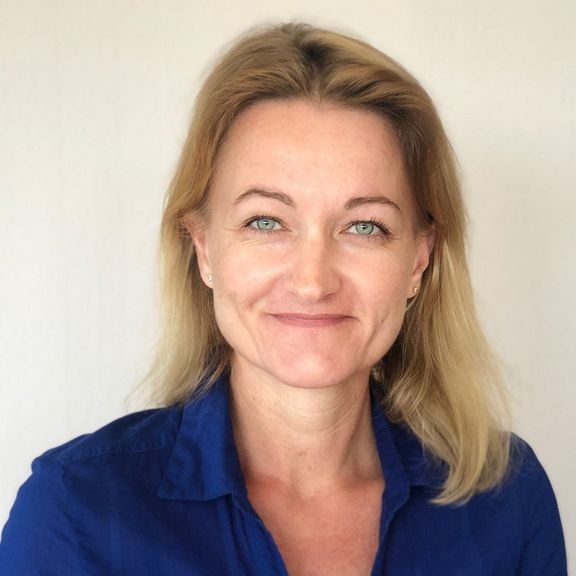
Mag. Michaela Rosenwirth
Administration of Studies
+43 5 90500 2403
m.rosenwirth[at]fh-kaernten[dot]at
FH-Prof. Mag. Dr. Dietmar Sternad, BSc MBA
Head of Degree Program International Business Management Master, Professor of International Management
+43 5 90500 2417
d.sternad[at]fh-kaernten[dot]at
Each of the first three semesters consists of six 5 ECTS credits modules. Semester 4 is dedicated to the master thesis (22 ECTS) and master exam (3 ECTS) as well as one 5 ECTS credits module. There are five types of modules in the new curriculum (in addition to the master thesis and master exam):
Practical Business Laboratories
Personal & Leadership Skills Development Program
Core Curriculum
Business Tools Master Classes
Electives/Specialization Modules (choose 2 out of 4)
[each specialization includes two modules à 5 ECTS credits]
Internationally active companies and organizations are very demanding when they recruit new employees. They usually look for people who are multilingual, solution-oriented, possess a high degree of cultural awareness, and are both generalists and specialists at the same time. International Business Management offers both, a well-grounded general business education in an international context, and the opportunity to immerse oneself in two of the four fields of specialization (International HR & People Management or International Supply Chain Management, and International Marketing & Sales Management or International Finance & Accounting).
In the individual modules, students acquire functional skills for doing business in an international context, but will also master challenges of increasing complexity (e.g., case studies, simulations, research projects, a management hackathon, or real-life consulting projects for companies), which allows them to acquire the problem-solving and interpersonal skills required in today’s globalized business environment.
In addition to the formal requirements for admission, applicants to the Master’s program in International Business Management should:
Graduates of the master’s degree program in International Business Management at Carinthia University of Applied Sciences are able to:
| Lecture | Type | SPPS | ECTS-Credits | Course number |
|---|---|---|---|---|
| Effective Management and Leadership of Global Teams | ILV | 4,0 | 6,0 | M4.05170.10.011 |
| Integrated Financial Management & Controlling | ILV | 4,0 | 6,0 | M4.05170.10.021 |
| International Entrepreneurship and Innovation Lab | PA | 4,0 | 6,0 | M4.05170.10.031 |
| Language Immersion Course German (DaF) 1 | UE | 4,0 | 6,0 | M4.05170.10.080 |
| Language Immersion Course Italian 1 | UE | 4,0 | 6,0 | M4.05170.10.072 |
| Language Immersion Course Russian 1 | UE | 4,0 | 6,0 | M4.05170.10.054 |
| Personal Skills Development Program | ILV | 4,0 | 6,0 | M4.05170.10.041 |
| Lecture | Type | SPPS | ECTS-Credits | Course number |
|---|---|---|---|---|
| CEE/SEE and Global Business Environment | ILV | 4,0 | 6,0 | M4.05170.30.181 |
| Data Analytics, Artifical Intelligence and Research Methods Group 1 | ILV | 4,0 | 6,0 | M4.05170.30.191 |
| Data Analytics, Artifical Intelligence and Research Methods Group 2 | ILV | 4,0 | 6,0 | M4.05170.30.191 |
| International Consulting Lab | PA | 4,0 | 6,0 | M4.05170.30.201 |
| Language Immersion Course German (DaF) 3 | UE | 4,0 | 6,0 | M4.05170.30.260 |
| Language Immersion Course Italian 3 | UE | 4,0 | 6,0 | M4.05170.30.252 |
| Language Immersion Course Russian 3 | UE | 4,0 | 6,0 | M4.05170.30.234 |
| Specialization Area: International Finance and Accounting | Type | SPPS | ECTS-Credits | Course number |
| International Finance and Accounting | ILV | 4,0 | 6,0 | M4.05170.30.221 |
| Specialization Area: International Marketing and Sales Management | Type | SPPS | ECTS-Credits | Course number |
| International Marketing and Sales Management | ILV | 4,0 | 6,0 | M4.05170.30.211 |
| Lecture | Type | SPPS | ECTS-Credits | Course number |
|---|---|---|---|---|
| International Digital Marketing Lab | PA | 4,0 | 6,0 | M4.05170.20.111 |
| International Strategic Management | ILV | 4,0 | 6,0 | M4.05170.20.101 |
| Language Immersion Course German (DaF) 2 | UE | 4,0 | 6,0 | M4.05170.20.170 |
| Language Immersion Course Italian 2 | UE | 4,0 | 6,0 | M4.05170.20.162 |
| Language Immersion Course Russian 2 | UE | 4,0 | 6,0 | M4.05170.20.144 |
| Managing the Internationalization Process | ILV | 4,0 | 6,0 | M4.05170.20.091 |
| Specialization Area: International Human Resource Management | Type | SPPS | ECTS-Credits | Course number |
| International Human Resource Management | ILV | 4,0 | 6,0 | M4.05170.20.121 |
| Specialization Area: International Supply Chain Management | Type | SPPS | ECTS-Credits | Course number |
| International Supply Chain Management | ILV | 4,0 | 6,0 | M4.05170.20.131 |
| Lecture | Type | SPPS | ECTS-Credits | Course number |
|---|---|---|---|---|
| Master Exam | ME | 0,0 | 3,0 | M4.05170.40.291 |
| Master Thesis | MT | 0,5 | 23,0 | M4.05170.40.281 |
| Sustainable Global Management Practices | ILV | 3,0 | 4,0 | M4.05170.40.271 |
| Lecture | Type | SPPS | ECTS-Credits | Course number |
|---|---|---|---|---|
| CEE/SEE and Global Business Environment | ILV | 4,0 | 6,0 | M4.05170.30.181 |
| Data Analytics, Artifical Intelligence and Research Methods | ILV | 4,0 | 6,0 | M4.05170.30.191 |
| International Consulting Lab | PA | 4,0 | 6,0 | M4.05170.30.201 |
| Language Immersion Course German (DaF) 3 | UE | 4,0 | 6,0 | M4.05170.30.260 |
| Language Immersion Course Italian 3 | UE | 4,0 | 6,0 | M4.05170.30.252 |
| Language Immersion Course Russian 3 | UE | 4,0 | 6,0 | M4.05170.30.234 |
| Language Immersion Course Slovene 3 | UE | 4,0 | 6,0 | M4.05170.30.246 |
| Specialization Area: International Finance and Accounting | Type | SPPS | ECTS-Credits | Course number |
| International Finance and Accounting | ILV | 4,0 | 6,0 | M4.05170.30.221 |
| Specialization Area: International Marketing and Sales Management | Type | SPPS | ECTS-Credits | Course number |
| International Marketing and Sales Management | ILV | 4,0 | 6,0 | M4.05170.30.211 |
| Lecture | Type | SPPS | ECTS-Credits | Course number |
|---|---|---|---|---|
| Master Exam | ME | 0,0 | 3,0 | M4.05170.40.291 |
| Master Thesis | MT | 0,5 | 23,0 | M4.05170.40.281 |
| Sustainable Global Management Practices | ILV | 3,0 | 4,0 | M4.05170.40.271 |
Due to the holistic and comprehensive nature of the International Business Management program, it opens a range of different career opportunities. In addition to having a profound international business education, our alumni combine intercultural and communication skills, strategic and analytic thinking capabilities, an entrepreneurial approach and the ability to effectively solve complex business problems in collaboration with others – competences that are widely sought by employers in different professional fields, in multinational companies, SMEs and entrepreneurial start-ups as well as in international institutions.
Alumni of the International Business Management master’s program have the right to be admitted to doctoral studies in social and economic sciences according to the Act of the Austrian Federal Minister for Science and Research (BGBl. II Nr. 253/2008).
"After my bachelor’s study, I was researching for a suitable master’s program across Europe. In addition to the clear international focus and the mixed group of people from different nationalities, CUAS mainly stands out with its focus on intercultural competences and the CEE/SEE region. I also loved the possibility to learn another language."
Carina Lechner
Alumni, Salesforce Consulting at Deloitte Digital Austria
"The combination of working and studying at the same time prepared me for the business career that lies in front of me and, because of the excellent study program at CUAS, I feel ready for taking the next step of developing a young and thriving company."
Corina Schmiedt, MA
Alumni, Authorised Officer & Sales Manager at mediapool mvp GmbH
"The International Business Management program was a great adventure spiced up with challenging group works, projects, case studies, experienced guest speakers and company visits. The internationality of our class allowed us to practice our intercultural competence on a daily basis. In the 4th semester I decided to get out of my comfort zone and applied for an HR internship at the Adidas Global Headquarters. During this period, I also wrote my master thesis about the changes in the recruitment industry. After graduating, I managed to stay within in the company in the Talent Acquisition department, which means hard work pays off and I am definitely working for my passion."
Bettina Szilveszter
Alumni, Sourcer – Digital Brand Commerce / Talent Acquisition, Adidas, Germany

I made the decision to pursue my studies at CUAS after completing my bachelor’s degree in entrepreneurship in Ljubljana, Slovenia, and later one year…

The IBM programme in Villach, Austria has been one of the most relevant experiences in my life! Couldn’t be happier about choosing to be here and be…

"Choices what you are making today will design your future tomorrow."

As I already did my bachelor´s degree at CUAS, it became clear that I want to become part of that master´s program after I heard about it.
Our International Business Management faculty
Renowned full-time and part-time faculty members ensure a highly interactive and engaging state-of-the art management education in the International Business Management master’s program.
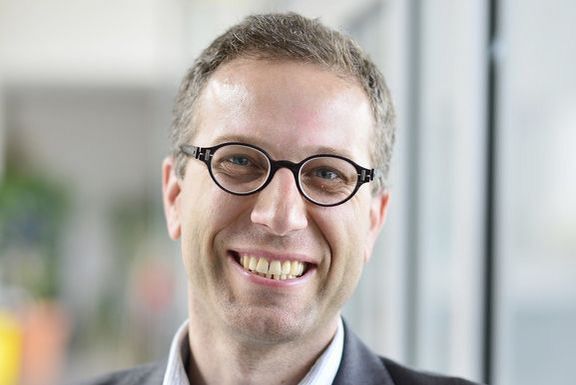
Dietmar Sternad is Professor of International Management. In his prior managerial career, he was Managing Director of one of Austria's leading trade book publishing groups and the CEO of a media company in Slovenia. He is an alumni of the IMTA (CEEMAN) and GLOCOLL (Harvard Business School) management teachers’ programs, has lectured at universities and business schools in several European countries, has (co-)authored a range of different books, scientific articles, and case studies, and received several national and international awards for teaching excellence (e.g. the Austrian State Prize for Teaching Excellence “Ars docendi”) and for creating teaching materials.
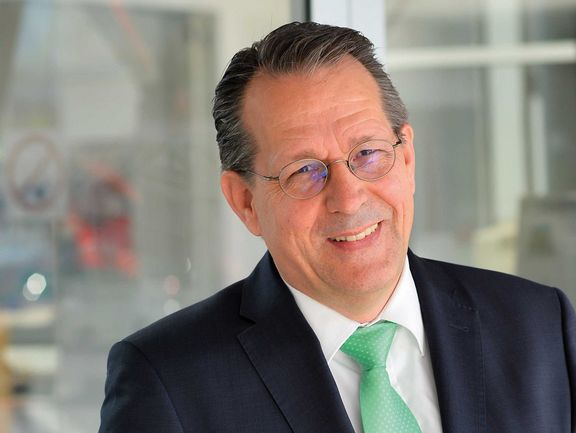
Dietmar Brodel is Dean of the School of Management at CUAS. Between 2006-2014, he served as Rector of CUAS. Before, he was Professor at SME University for Applied Sciences in Bielefeld, Managing Director at Stuttgart Institute of Management and Technology, and a research assistant at the University of Hohenheim, Stuttgart. He is member of many academic associations and serves on several academic and professional boards.
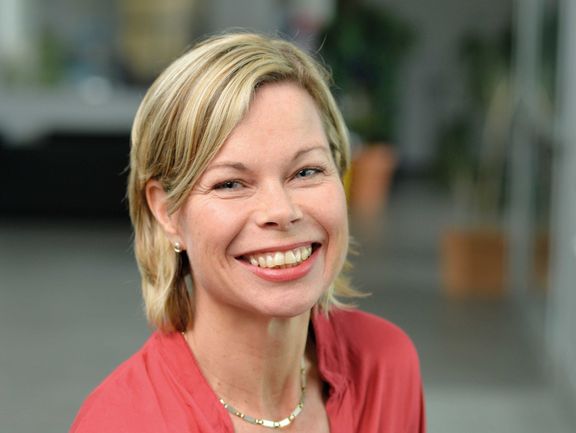
Janet Brown is lecturer in Intercultural Communication and English for Specific Purposes. She was Program Development Director and is now Director of Studies of the English Bachelor program Intercultural Management. She is responsible for the curricular development of the English and foreign language programs at the School of Management and was involved in winning the European Language Label for the International Business Management language program.
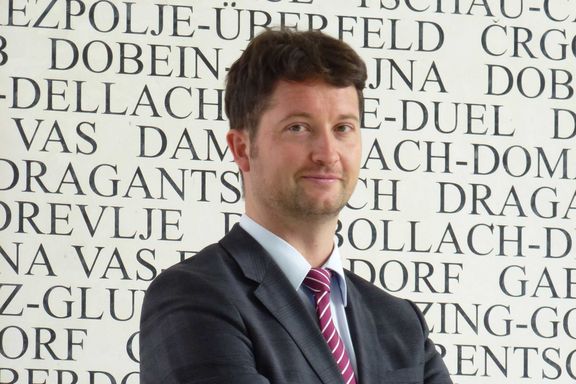
Klaus Brugger holds a PhD in Business Administration as well as a PhD in Law from the University of Vienna. In his prior managerial career, Klaus Brugger spent several years in Zurich (Switzerland), working as an equity analyst for a Swiss investment bank. Afterwards, Klaus was Head of Securities Business at a large Austrian Bank.
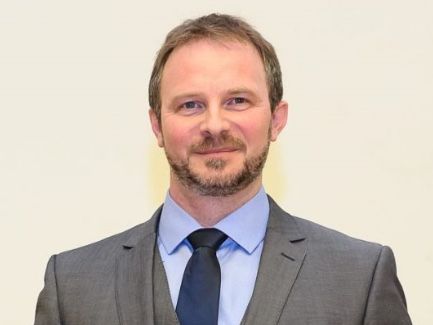
He teaches DaF/DaZ, Russian, academic writing and is currently researching in the research group Trans Space on issues relating to the integration of refugees into Austrian society. He also works in internationalization programs with Russian universities. His research interests lie in teaching foreign languages, methodology of DaF teaching, intercultural communication, applied lexicography and migration research.
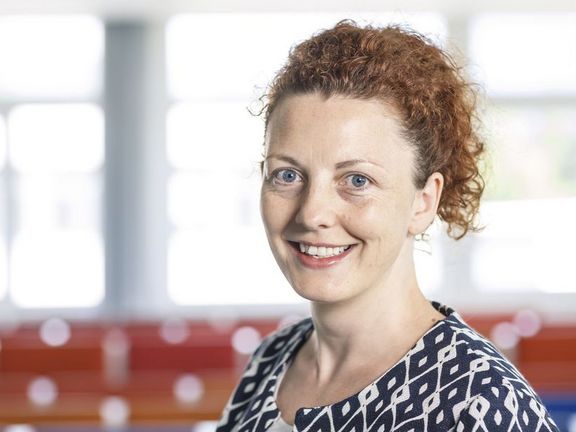
Eithne Knappitsch is Program Director of the Intercultural Management bachelor’s program at CUAS. She is also President of SIETAR Austria (Society for Intercultural Education Training and Research). Eithne has also previously lectured at the University of Klagenfurt and the University of Ulster, and worked as a researcher for the Culture, Arts and Leisure Committee at the Northern Ireland Assembly.
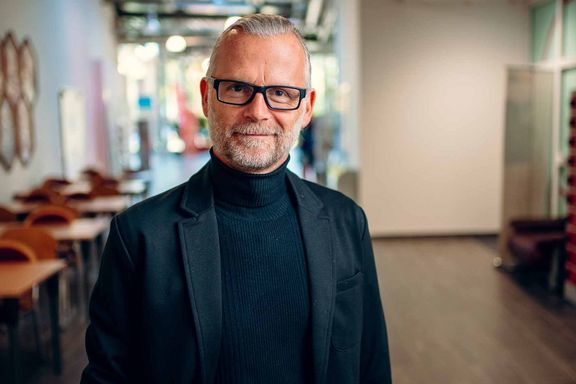
Michael Kosutnik is professor for HR and Organisation at FH Kärnten/CUAS. Before, he worked in leading human resource management functions in two internationally operating companies for almost 20 years.
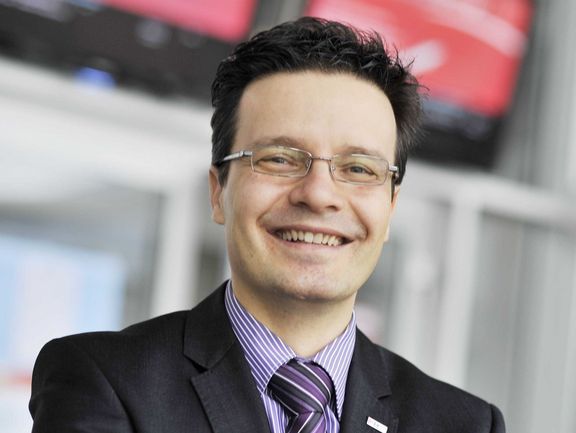
Wolfgang Leitner is Professor for Logistics and Production Management at CUAS. In his prior job, he worked as a Director for Customer Integration Service at Flex, a contract manufacturing company, where he was actively working on process integration of major electronics and automotive customers (e.g. HP, Dell, Epson, Microsoft or Psion and Audi, Ford, BMW, GM etc.) on a global basis.

Florian Oppitz is Professor of Public and European Law at CUAS. In his prior career, he was an assistant at the law faculty of Vienna University, temporary lawyer at the European Court of Human Rights and junior lawyer at a business law firm in Vienna. He is also lecturer at the Rhein-Waal University in Kleve.

Rahel Schomaker is an economist with an additional degree in Political Science and Middle Eastern Studies. Much of her academic work is dedicated to issues relevant in emerging markets, in particular the Middle East. She also works with national and international institutions in consultancy projects in the fields of higher education in economics and public management improvement in the MENA region, but also Central Asia.
Sven Bakker is a lecturer in Business Intelligence (BI) at several public and private universities in The Netherlands. Before he became a fulltime lecturer, he worked for ten years as a BI consultant, researcher and data scientist crunching large data sets and creating economic foresight models to provide businesses and governmental organizations with the right decision-making knowledge. Besides his specialization in BI, he also lectures business research, blockchain technology, and international economics.
Klaus Ehrenbrandtner is a Senior Consultant at Trigon Entwicklungsberatung (Klagenfurt, Austria). The focus of his consultancy work lies on strategy, brand development, and internationalization strategy. Before, he worked in several leading marketing and management roles for the Austrian National Tourist Office (Österreich Werbung). He is also a lecturer and trainer in the fields of digital marketing, innovation management, tourism management and international strategy at different universities.
Bernhard Erler is Managing Director of Klagenfurter Messe Betriebsgesellschaft m.b.H. (the leading trade fair organizer in Carinthia), where he is also responsible for internationalization. He is also active in national and international fair associations (MA – Messen Austria, CEFA – Central European Fair Alliance, UFI – Union Foires International).
Martin Gruber works in the Strategy Office of NXP, one of the leading semiconductor companies worldwide, in Austria, the Netherlands, and the USA. He has a long-standing experience in strategy, mergers & acquisitions, as a general manager of a complete business sector, and as a lecturer for strategy-related topics at universities of applied sciences.
Meinrad Höfferer is Deputy Director of the Economic Chamber of Carinthia and the Head of its Foreign Trade and International Affairs division. His prior professional career included positions in the BMW Group (Munich, Germany) and at Mercedes Benz (Salzburg, Austria). In his current position, he supports Carinthian companies in their internationalization process worldwide.
Peter Irlacher manages the Group Finance department of Styria Media Group AG, Graz, a leading player in the Austrian and South-East European media market. In this position, he is responsible for financial controlling, consolidation and taxes. He started his career in Styria in the international part of the group in 2007 where he played an active role in the international expansion of the media company. Before, Peter worked at Ernst & Young in Vienna.
Stefan Jausz has top management experience in different industries, including prefabricated homes, building technology, and vehicle construction. Before his career in industry, he worked as management consultant for several international companies, advising them in the fields of business development and financial and organizational restructuring.
Stefan Korb is sales manager and authorized officer of fischer Edelstahlrohre Austria GmbH, a producer of welded stainless steel tubes, where he is responsible for the worldwide export of special goods. Several years in the supervisory board of a company in the field of mechanical engineering completes his international sales experience.
Andreas Knorr is Professor of Economics: Economic and Transport Policy at the German University of Administrative Sciences Speyer. He received his PhD in Economics as well as his habilitation from the University of Bayreuth, Germany. Professor Knorr has written several monographies and over one hundred academic articles on a broad range of economic topics.
Udo Kögl is Business Unit CFO at a German commercial aircraft inserts company. In his prior career, he served as a Financial Director for a business unit and global R&D of a leading international supplier of integral lighting solutions, and as the Head of Business Models and Controlling and managing director of a research company.
Peter Parycek is Professor for E-Governance and Head of the Department for E-Governance and Administration at the Danube University Krems. His research interests focus on the effects of technology on state, society and economy as well as the necessary changes in strategies, policies and in both legal and organizational systems.
Alfons Prießner is Chief of Staff at the International EduTech start-up GoStudent. Before, he was working as a consultant at the international management consultancy firm McKinsey & Company. During his consulting career, he worked in various multinational project teams in more than 10 countries with a consultancy focus on the industries of agriculture and power utilities as well as on companies with a high need for restructuring and turnaround support.
Ilse Rapatz is Senior HR Manager at Philips and her main responsibilities are strategic HR development, HR reporting, budgeting, performance management, talent management, compensation & benefits and many more. Besides her professional work career, she also works for the Carinthian Industrial Association, for the control committee of the Carinthian regional health insurance, for the labor market service and for a CSR network called “Verantwortung zeigen”.
Markus Raunig holds the position of General Manager of Henkel Iberica (Barcelona), where he is responsible for the Laundry and Homecare business of Henkel in Spain and Portugal. Before, he had different assignments as a general manager and in sales and marketing in four different countries (Poland, Serbia, Turkey, Latvia) and worked in the regional Henkel headquarters in Vienna.
Gabrielle Smith is a Lecturer in Research and Writing and Effective Communication at Stanford University (USA) and a Senior Lecturer for Language Skills and Academic Writing at the University of Vienna. She holds a Bachelor’s degree from the University of California, Santa Cruz, and a Master´s Degree (MATESOL) from San Jose State University.
Barbara Stampf holds a PhD in Business Management with a focus on industry, innovation and international management. Before founding her own consulting company, she worked in two multinational companies for many years, where she was responsible for diverse HR (and also some other management) functions.
Alexander Tauchhammer holds an Endowed Professorship for Digital Transformation at CUAS. He is also Member of the Management Committee and Head of Customer Centricity and Transformation at Dr. Oetker Austria. Previously, he was also Head of Global Digital Marketing and member of the Digital Transformation Office at Dr. Oetker. Before that, he was working in the Silicon Valley, New York, Boston, London, Berlin and Vienna in digital start-up companies in the field of digital marketing. He has earned the title „Onliner of the Year“ in Austria, has received an award at the Austrian State Prize for Multimedia and won two times gold and one time bronze at Austrians largest online Advertising ceremony (IAB Webad) for his digital projects.
Anita Verderber works in an agency called frei-stil, which is based in Klagenfurt. The agency’s main customer is FCA Austria with its brands Alfa Romeo, Jeep, Fiat and Abarth. As an event and communication agency, the agency is responsible for product launch events, the creation of communication strategies, marketing communication activities such as road shows, tradeshows, or promotional activities.
Brigitta Winkler is a lawyer specialized in labour law. As an expert for international labour law, she was responsible for the subsidiaries of Rail Cargo Austria AG (one of the leading rail freight logistics companies in Europe) in Eastern and South East Europe. In her prior career, she worked for international law firms in Sydney and Vienna before taking the exam to the Austrian Bar. She also worked for the leading logistics and postal services provider in Austria.
Ing. Gerald Zankl BSc is the Director of Global Inside Sales at Bitmovin, Inc., a global video infrastructure provider and the co-founder and CEO of Kickscale, a company that redefines B2B business meetings. With ample experience in the field of international sales and business development and (digital) B2B marketing, he helped tech startups to dramatically grow their business and increase revenue and profitability.
Silke Fankhauser studied German Philology at AAU Klagenfurt and is a certified German as a Foreign Language teacher and an ÖIF and ÖSD tester. She works at different learning institutes like BFI and WODAS, where she also holds Phonetic- and Drama in Education-Workshops. In 2020, she was lecturer for teaching foreign languages with the methods of Drama at University Klagenfurt. At the moment, she is completing her Master‘s Degree in Theatre Pedagogy.
After her university studies in Vienna and Bologna Christina Kendi worked as a teacher for German as a foreign language in private and public schools in Bologna, Reggio Emilia and Vienna. For some years now she is teaching Italian in a business school in Carinthia where she is also the coordinator of the Erasmus+ program.
Karin Martin is an entrepreneurial linguist and advocate for multilingualism. She is a native Italian who has lived and worked in Italy, Germany, Spain and France, before moving to Austria in 2011. She holds a Master’s Degree in Linguistics from the University of Verona and a Certificate in Teaching Italian as a Foreign Language from the University Ca’ Foscari in Venice.
Silke Mohl-Lengauer has been working as a trainer for Spanish and German as a foreign language in the field of adult education since 2004. In 2007 she also started her career as a self-employed consultant. Her tasks involve consulting as well as training. She is also certified as a coach for prospective language trainers.
Verena Paar-Grünbichler studied Translations Studies (Spanish and French) and attended a course in German as a Foreign Language at the University of Graz. She has experience teaching German in different countries, for example Bulgaria, Slovakia, France and Austria. She is also an ÖSD approved examiner for the levels A1-C1.
Chiara Percuzzi was born in Gorizia (Italy), studied Classical Philology at the University of Trieste and attended a course about didactic strategies for teaching Italian as a foreign language at the University of Siena (DITALS 1). She has been active in the field of translation and translated several books from German to Italian. She also teaches Italian as a foreign language at the Music Conservatory of Klagenfurt.
Josef Urschitz also teaches Russian at the Alpen-Adria University of Klagenfurt at the department of Slavic languages and at the Faculty of Management and Economics. During his studies, he took part in an exchange program for two semesters at Voronezh State University, Moscow State University and Leningrad State University (today St. Petersburg). For nearly 30 years, he has also worked as an interpreter and translator.
FH-Prof. Mag. Dr.
Dietmar Sternad, BSc MBAMag.
Michaela RosenwirthMag.a
Margit SchagerMag.a
Katarina FürstFH-Prof. DDr.
Klaus BruggerFH-Prof. Dr.
Wolfgang EixelsbergerFH-Prof. Dr.
Dietmar BrodelFH-Prof.in Dr.in
Eithne KnappitschMag.
Wolfgang LeitnerFH-Prof. MMag. Dr.
Florian OppitzDipl.-Ing.
Martin StrombergerFH-Prof.in MMag.a Dr.in
Kathrin Stainer-HämmerleFH-Prof. Mag. Dr.
Alexander Schwarz-MuschFH-Prof.in Mag.a
Hermine BauerFH-Prof. Dipl.-Math. Dr.
Florian Buchner, M.P.H.MMag. Dr.
Meinrad HöffererMag.
Peter IrlacherMag. Dr.
Stefan JauszProf. Dr. h. c. Dr.
Andreas KnorrMag. (FH)
Stefan KorbMag. Mag.a
Birgit KramerMMMag. Dr.
Udo KöglMag.a
Verena Paar-GrünbichlerMag.
Carmen Peresich, Bakk. MAMag.a
Ilse RapatzMag.
Markus RaunigDr.in iur.
Maria SkofMag.
Josef Johann UrschitzMag.
Anita Verderber, BEdMag.
Birgitta Winkler, LL.M.In order to be admitted into a bachelor degree program at the Carinthia University of Applied Sciences at least one of the following criteria must be fulfilled:
Moreover, there are degree program specific additional prerequisites as well as more comprehensive information regarding admissions on the individual web pages of the corresponding degree program. The German University of Applied Sciences (Fachhochschule) entrance qualification certificate is only valid as an admission prerequisite for an Austrian UAS/FH bachelor degree program when combined with an applicable vocational certificate.
Persons in their last year of school may apply for a study place in a bachelor degree program before taking their secondary school-leaving exams by submitting their most current secondary school grade/marks report. The secondary school-leaving certificate must be submitted during the registration process at the beginning of the semester.
In order to be admitted into a master degree program at the Carinthia University of Applied Sciences at least one of the following criteria must be fulfilled:
Persons in their last semester of their bachelor degree programs may apply for a study place in a master degree program by submitting their most current transcript of records. The completion of the bachelor degree program certificates must be submitted during the registration process at the beginning of the semester.
Specific degree programs might have further requirements
Before enrolment in a degree program at the Carinthia University of Applied Sciences, a learning agreement is concluded between the prospective student and the Carinthia University of Applied Sciences.
This contract defines the rights and obligations of the student and the Carinthia University of Applied Sciences.
The rights and obligations of the student at a glance:
The learning agreement is sent electronically to applicants who have been accepted onto a degree program. In addition to the electronic consent to the learning agreement, the timely payment of the tuition fee and the Austrian Students´ Union fee is a prerequisite for admission to the degree program.
Significant legislative basis for a UAS degree program in Austria can be found here:
FHG - Federal Act on University of Applied Sciences Degree Programs (in German only)
HS-QSG - Act on Quality Assurance in Higher Education
Regarding the accreditation of previously gained academic knowledge through courses and/or exams taken at other institutions of higher education, the respective degree program administration/director will use the principle of ‘course per course relevant accreditation.
The equivalency of the previously taken courses in terms of content and scope to the offered courses in the degree program will be determined by the degree program administrator/director. If an equivalency is determined to exist, then those courses passed with positive marks/grades will be recognized and accredited. Additional examination of academic knowledge in these cases is not foreseen.
Specialized knowledge and relevant experiences acquired through professional and on-the-job experience may also be considered for accreditation for relevant courses. In cases of accrediting professional experience for course credits, additional examinations may be carried out if applicable.
Applications for accreditation are to be submitted directly to the Program Director no later than the start date of the relevant study course(s).
The student must decide where s/he will spend the semester abroad (i.e., a partner university) and will need to coordinate with the responsible Departmental International Coordinator concerning the necessary requirements.
Before the student spends the semester abroad, s/he is required to submit a completed Learning Agreement. This document contains all the courses the student will take abroad and will be recognized at CUAS once s/he finishes the courses successfully. The courses should correspond as much as possible to the courses offered in the curriculum of the student’s CUAS study program in the relevant semester in content and semester hours. It is highly recommended to students to take 30 ECTS credits abroad.
The Learning Agreement is signed and approved by the individual student, the host institution and the program director of the study degree program or a designated faculty member at CUAS.
The Learning Agreement is a declaration of the courses which are to be taken abroad and is not valid as an official recognition document by Austrian law. Therefore, the document is to be linked to the official document “Antrag auf Anerkennung / Application for Accreditation” for academic studies abroad.
During the first four weeks of the study abroad semester the student is allowed to change the Learning Agreement. For example, previously selected courses do not take place or overlap. The host institution and CUAS must agree upon the courses to be changed. If this is approved, the changes must be listed separately on the Learning Agreement (section “Changes to the original Learning Agreement). Afterwards the document is signed and approved by the individual students, the host institution and the program director of the study degree program or a designated faculty member at CUAS.
After the semester abroad the courses taken abroad will be recognized at CUAS. Therefore, the original Transcript of Records from the host institution and the legally valid document “Antrag auf Anerkennung / Application of Accreditation” (which is linked to the Learning Agreement) are obligatory. The student lists on the document the successfully finished courses abroad. After the recognition process is positively completed, the CUAS Transcript of Records will contain those courses.
In cases where the semester abroad is not completed successfully, the Departmental Coordinator and program director of the relevant study degree program will determine on an individual basis if and what courses will be accredited and what a student can do to make up those missing credits which were not accredited.
Detailed information about a semester abroad
For further questions please contact the International Relations Office.
Degree programs at University of Applied Sciences fundamentally only offer a limited number of study places.
In the framework of the application process each applicant will carry out an interview which will influence the allocation of the study places. Additionally, specific degree study programs may require written application tests as well as content-specific/technical aptitude tests. Detailed information regarding the degree program specific application requirements are provided on the degree programs’ web pages.
Repetitive applications for a study place at the same study degree program (e.g., in the following year) is generally allowed; however, the entire application process will start anew and candidates must resubmit all documents and carry out all steps again.
Carinthia University of Applied Sciences reserves the right to levy a surety of EUR 363.36 from the applicant in case of doubt on the authenticity or correctness as regards content of the documents proving the fulfillment of the admission requirements or in case that the documents are not sufficient for a decision on the fulfillment of the admission requirements in accordance with § 4 para. 5a FHG. This surety will be reimbursed to the applicant if the review has proved the authenticity and the correctness of the documents and the fulfillment of the admission requirements.
####ContentToReplace####
Detailed information about application deadlines can be found at the websites of the respective degree programs!
Carinthia University of Applied Sciences accepts both exchange students from partner institutions and so-called ‘Free Mover’ students. The decision to accept Free Movers is made on an individual basis by the relevant Degree Program Director. In the first case an official nomination (via e-mail) from the partner institution is necessary. After the nomination the student will be provided information regarding the application procedure.
Free Movers may apply directly.
Detailed information and deadlines
In order to register as a student at CUAS, each student must fulfill the following:
The enrollment periods for each degree program will be announced in advance to all applicants.
The examination regulations are an integral part of the education contract between the student and Carinthia University of Applied Sciences. It is also available to students and lecturers on the intranet.
Exams are graded according to the FHG [Federal Act on University of Applied Sciences Degree Programs]) § 17 (1), in the Austrian Grading System:
Austrian grading scheme | Definition |
1 | EXCELLENT: |
2 | GOOD: |
3 | SATISFACTORY: |
4 | SUFFICIENT: |
Successfully completed | Positive Leistung, wo eine genaue Differenzierung nicht tunlich ist. |
5 | UNSATISFACTORY: |
Not completed | Negative performance, where a strict differentiation is not adequate |
Recognised | Transfer credits for courses with equivalent learning outcomes |
The final bachelor's and master's examinations before a committee are graded according to FHG (Federal Act on University of Applied Sciences Degree Programs) § 17 (2) in the following grading scale:
In applying this grading system, it has to be noted that the grades “Pass with merit” and “Pass with distinction” are reserved exclusively for an examination performance clearly exceeding the level of performance required to pass these final exams.
Please note: This part of the Website is only available in German.
Die Nostrifizierung ist die Anerkennung eines ausländischen Studienabschlusses (Ausbildung im tertiären Bereich/an Hochschule/Universität) als gleichwertig mit dem Abschluss des inländischen Bachelor- bzw. Masterstudiums an der FH Kärnten. Die Nostrifizierung an der FH Kärnten kann nur erfolgen, wenn ein mit dem ausländischen Studienabschluss gleichwertiger Studiengang an der FH Kärnten eingerichtet ist und sofern die Nostrifizierung zwingend für die Berufsausübung in Österreich notwendig ist (z.B. reglementierter Beruf). Ein nostrifizierter akademischer Grad entfaltet dieselben Rechtswirkungen wie ein im Inland erworbener akademischer Grad.
Innerhalb der Europäischen Union (EU) bzw. des Europäischen Wirtschaftsraumes (EWR) ist eine Nostrifizierung nicht zwingend erforderlich und daher auch nicht möglich. Die Anerkennungsentscheidung von europäischen Ausbildungen in einem reglementierten Beruf (z.B. im Bereich der medizinisch-technischen Dienste, Hebammen und Gesundheits- und Krankenpflege) erfolgt in Österreich durch die zuständige Behörde (das für Gesundheit zuständige Ministerium bzw. Landesregierungen).
Auszug aus: nostrifizierung.at
Nostrifizierungsansuchen können nur für Studienabschlüsse eingebracht werden, welche mit dem Studienangebot der FachhochschuleKärnten übereinstimmen.
Die Nostrifizierung ist ein Verwaltungsverfahren an einer Universität bzw. Fachhochschule, die an bestimmte Voraussetzungen gebunden ist.
Der/Die Antragsteller/in muss nachweisen, dass die Nostrifizierung für seine/ihre angestrebte Tätigkeit in Österreich eine zwingende (siehe: „Was ist vorzulegen?“) Voraussetzung ist. In allen anderen Fällen obliegt die Bewertung des ausländischen Studiums ohnehin dem/der Arbeit- oder Dienstgeber/in.
Die Nostrifizierung kann an jeder Universität bzw. Fachhochschule, an der ein vergleichbares österreichisches Studium eingerichtet ist, beantragt werden. In vielen Fällen kommen daher mehrere Universitäten bzw. Fachhochschulen in Betracht. An welcher davon der/die Antragsteller/in in einem solchen Fall das Verfahren beantragt, bleibt seiner/ihrer Wahl überlassen. Der gleiche Nostrifizierungsantrag kann jedoch nur an einer Hochschule eingebracht werden.
Siehe: Notwendige Anlagen zum Antrag auf Nostrifizierung
Die Nostrifizierungstaxe beträgt derzeit EUR 150,00 und ist im Voraus zu entrichten. Dazu kommen Gebühren und Verwaltungsabgaben. Mehr Informationen unter Anlagen zur Nostrifizierung.
Kriterien der Überprüfung sind Inhalte, Umfang und Anforderungen desjenigen österreichischen Studiums, mit dessen Abschluss die Gleichwertigkeit beantragt wird. Wenn einzelne Voraussetzungen nicht zutreffen, können diese als außerordentliche/r Studierende/r absolviert werden. Sämtliche Bedingungen werden mit Bescheid vorgeschrieben. Wenn der/die Antragsteller/in alle zusätzlichen Bedingungen erfüllt hat oder wenn keine Bedingungen vorgeschrieben wurden, stellt die zuständige Stelle die Nostrifizierung fest.
..., weil die Unterschiede zum österreichischen Studium zu groß sind, kann um Zulassung zum österreichischen Studium angesucht und nach erfolgter Zulassung die Anerkennung von Prüfungen aus dem ausländischen Studium, soweit sie den österreichischen gleichwertig sind, erfolgen. Danach kann das österreichische Studium fortgesetzt und abgeschlossen werden.
Auszug aus: Wie-Verläuft-eine-Nostrifizierung
The European Credit Transfer and Accumulation System (ECTS) is a student-oriented system to accumulate and transfer different study credits.
The ECTS is one of the main characteristics of the Bologna Process and is used within the European tertiary system to allow universities and other institutes of higher education to recognize and accredit students’ previous post-secondary coursework. Moreover, this allows students to accumulate credits from different institutions as well ensure that their tertiary degrees are recognized internationally. Thus, the ECTS-system regulates not only student mobility within Europe but also the admission to institutes for further studies.
The system is based upon the transparency of defined learning outcomes and learning processes. The acquisition of experience and knowledge is made transparent through the defined learning outcomes in the course description, the corresponding curriculum module and the degree program’s entire curriculum; this significantly contributes to quality assurance.
ETCS credits are calculated based upon a student’s workload, which in normal cases is necessary to pass a course successfully.
The learning outcomes describe what students should know, understand and be able to do after the successful completion of a learning process. The work load defines the amount of time typically necessary for all learning activities (e.g., lectures, seminars, projects, lab exercises, self-study, exams) in order to achieve the expected learning outcomes.
Within the European tertiary system, a semester is assessed to have 30 ECTS credits and an academic year 60 ECTS credits. The workload for an academic year ranges between 1.500 and 1.800 hours. In Austria, one ECTS credit is equivalent to a workload of 25 real hours.
The Learning Agreement (an agreement to accredit courses completed in a semester abroad) encompasses a listing of all the courses/modules/learning units that a student is to attend and complete at the partner university during the semester abroad. The courses’ ID-numbers and the ECTS credits to be transferred are listed in this document as well. When a ECTS credit transfer is to take place, then the learning agreement must be signed and approved by all three parties involved before the semester abroad: the student, the host institution and the sending institution. It is possible to make amendments to the learning agreement four weeks after the begin of the semester abroad.
The document Confirmation of Stay (Aufenthaltsbestätigung) confirms the actual stay of students at the host institution and is normally issued by the International Relations Office. The document may be issued by the host institute’s International Relations Office at the earliest two weeks before students abroad depart back to their home countries. This document is mandatory for Erasmus+ students.
The Transcript of Records (Datenabschrift) provides an overview of all study courses (completed courses/modules, grades/marks and the number of achieved ETCS credits). The ToR provides a proof of courses successfully completed and thus is very useful for student mobility (before the semester abroad, the ToR can be provided to the host institution and after the semester abroad, it provides the foundation for the recognition/accreditation of courses completed abroad at the sending institution).
The Diploma Supplement (Diplomzusatz) contains a standardized description of a completed degree program. The diploma supplement aims to improve the overall international transparency of degrees as well as to serve as a document for the recognition of academic and professional qualifications.
Infos unter www.fh-kaernten.at
For payments within the additional period, the tuition fee increases by 10%. Registration is only possible after receipt of payment at the account of CUAS!
*Please note the individual start of the courses! The exact dates can be found on the website of the respective degree programme, or contact the responsible administration for more information
**Please refer to the websites of the respective degree programs to find out which application periods are open.
*** Deviations and changes concerning the lecture-free periods are possible! Please inform yourself
about your study programme with your administration.